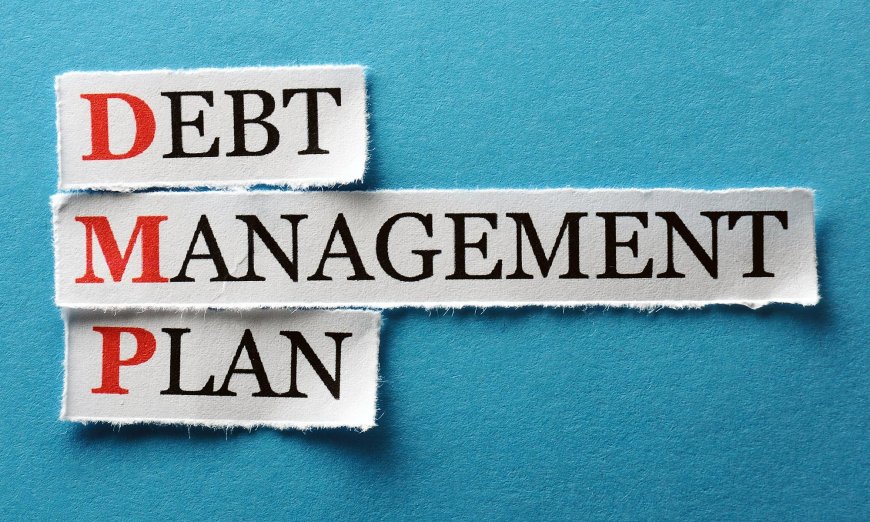Effective Debt Management Techniques to Achieve Financial Freedom
Unlock financial freedom with effective debt management techniques. Prioritize debts, consolidate loans, and build healthy financial habits for a secure future.

In today's world, managing debt has become a common challenge for many individuals. It's crucial to have a plan in place to effectively manage debt and achieve financial freedom. This article aims to provide you with valuable insights and practical techniques to navigate the path towards debt management and ultimately attain financial independence. By implementing these strategies, you can regain control of your finances and pave the way for a more secure future.
Understanding Debt and Its Impact
Debt can be both a useful tool and a burden, depending on how it is managed. While certain types of debt, such as mortgages or student loans, are considered investments in long-term assets, others, like high-interest credit card debt, can quickly become a financial burden. Understanding the impact of debt on your financial well-being is the first step towards effective debt management.
-
Assess Your Debt Situation: Begin by gathering all your debt information, including outstanding balances, interest rates, and repayment terms. This comprehensive overview will help you understand the extent of your debt and prioritize your repayment efforts.
-
Create a Budget: Establishing a realistic budget is essential for managing debt effectively. Track your income and expenses to identify areas where you can cut back and allocate more funds towards debt repayment.
Strategies for Effective Debt Management
Now that you have a clear understanding of your debt, it's time to implement effective debt management techniques that will lead you towards financial freedom:
-
Prioritize High-Interest Debt: Start by focusing on debts with the highest interest rates. By paying off these debts first, you reduce the overall interest you'll pay over time and accelerate your journey towards debt freedom.
-
Snowball or Avalanche Method: Choose a debt repayment strategy that aligns with your financial goals and preferences. The snowball method involves paying off the smallest debt first, while the avalanche method focuses on paying off the debt with the highest interest rate. Select the approach that motivates you and keeps you committed to the debt repayment process.
-
Debt Consolidation: Consider consolidating high-interest debts into a single loan or transferring balances to a lower-interest credit card. Debt consolidation can simplify repayment, reduce interest costs, and help you stay organized by having one monthly payment.
-
Negotiate with Creditors: If you're struggling to make payments, don't hesitate to reach out to your creditors. They may be willing to negotiate new repayment terms, lower interest rates, or offer hardship programs to help you manage your debt more effectively.
-
Seek Professional Guidance: If your debt situation feels overwhelming or you're struggling to develop a repayment plan, consult a reputable credit counseling agency or financial advisor. They can provide expert guidance, negotiate with creditors on your behalf, and offer personalized strategies tailored to your unique situation.
Building Financial Habits for Long-Term Success
Managing debt effectively goes beyond repaying balances. It involves adopting healthy financial habits that will support your long-term financial well-being:
-
Create an Emergency Fund: Establishing an emergency fund is crucial to avoid relying on credit cards or loans during unexpected financial challenges. Aim to save three to six months' worth of living expenses in a separate savings account for added security.
-
Live Within Your Means: Avoid the temptation of excessive spending and focus on living below your income. Differentiate between wants and needs, and prioritize saving and debt repayment over unnecessary expenses.
-
Track Your Expenses: Regularly monitor your spending to ensure you stay on track with your budget. Utilize personal finance apps or spreadsheets to gain insights into your financial habits and make necessary adjustments.
-
Build a Positive Credit History: Pay your bills on time and maintain a low credit utilization ratio to build a positive credit score. A good credit history will facilitate better borrowing terms and financial opportunities in the future.
-
Invest in Financial Education: Continuously educate yourself about personal finance to improve your financial literacy. Stay informed about money management, investment strategies, and debt avoidance to make informed financial decisions.
Conclusion
Effective debt management is crucial for achieving financial freedom and securing a brighter future. By assessing your debt situation, implementing smart repayment strategies, and adopting healthy financial habits, you can regain control over your finances. Remember, debt management requires discipline, patience, and a long-term perspective. Stay committed to your goals, seek support when needed, and celebrate each milestone along the way. Take control of your financial destiny and embark on a journey toward lasting financial freedom.
Also Read: Apple's Prosperity in China and the Promising Future in Asian Markets































































